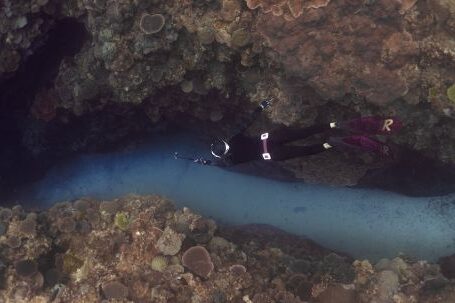When it comes to scuba diving, one of the most important tools you can have is a dive compass. This small, handheld device can make a big difference in your underwater adventures, ensuring that you navigate with ease and precision. Whether you’re a beginner or an experienced diver, a dive compass should always be a part of your essential gear. In this article, we’ll explore why a dive compass is so important and how to use it effectively.
The Importance of a Dive Compass
Underwater navigation can be challenging, especially when visibility is limited. Without a dive compass, you may find yourself disoriented and struggling to find your way back to your starting point. A dive compass eliminates this problem by providing you with a reliable and accurate reference point. It allows you to maintain a sense of direction and helps you navigate through the underwater environment effortlessly. With a dive compass, you can explore new dive sites confidently and ensure that you return to your entry point safely.
Using a Dive Compass
Before you dive into the water, it’s important to familiarize yourself with your dive compass and how it works. Here are some key steps to using a dive compass effectively:
1. Calibrate the Compass: Before you start your dive, it’s crucial to calibrate your compass to ensure its accuracy. This involves holding the compass level and away from any magnetic objects, such as dive tanks or metal accessories. Rotate the bezel until the compass needle aligns with the north indicator on the bezel.
2. Take a Bearing: Once your compass is calibrated, you can take a bearing. This involves aligning the lubber line on the compass with a fixed object or landmark, such as a boat or rock formation. Remember to hold the compass level and away from any magnetic interference. The lubber line will point in the direction you need to travel.
3. Maintain Your Heading: As you swim underwater, it’s important to constantly check your compass and maintain your heading. This will help you stay on track and avoid getting lost. Make adjustments as needed to ensure you’re heading in the right direction.
4. Use Natural Navigation Aids: In addition to your dive compass, you can also use natural navigation aids, such as the position of the sun or the direction of the current, to help guide your way. Combining these methods with your compass can further enhance your navigation skills.
5. Practice Regularly: Like any skill, using a dive compass effectively requires practice. Take the time to practice your navigation skills in different environments and conditions. This will help you become more comfortable and confident in using your dive compass.
Conclusion: Dive with Confidence
A dive compass is an essential tool for any scuba diver. It provides you with the ability to navigate underwater with ease and precision. By taking the time to master your dive compass and practice your navigation skills, you can dive with confidence, knowing that you will always find your way back. So, don’t forget your dive compass on your next dive adventure and experience the joy of exploring the underwater world with ease and precision.





